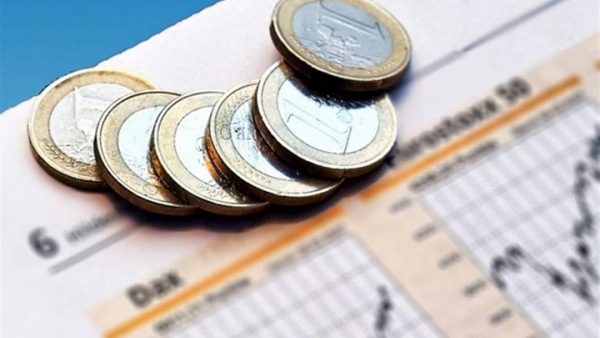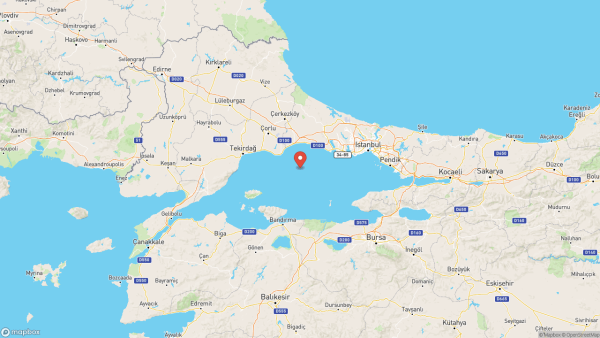
The change in the government’s attitude towards the pandemic with its decision that seems to be final, that there will be no restrictive measures like the general quarantine we all experienced last year, sends a double message:
Firstly to the unvaccinated that they have no choice in order to live freely other than to be vaccinated and secondly to all those who have been waiting or pushing for the continuation of the bonus policy and the coverage of income losses, as has been the case for the last 18 months.
The message is now clear that “the economy will not close again to tackle the pandemic of the unvaccinated.”
What does all this mean besides the fact that the available European and national resources were exhausted, which were not few, close to 40 billion euros, in two years.
The country is heavily indebted, the State can no longer borrow to cover income losses when the economy is operating, and in fact it is recovering rapidly. And that “those that have” taxpayers and professionals can not postpone payments to the Tax Office, property tax EFKA, and banks for the future.
The same message was sent by the Independent Public Revenue Authority which announced that it activates the information system “Eispraxis” which will outline the profile of each debtor with information on his income and assets from Taxisnet, Icisnet, Elenxis and the banks.
The same system will then allow the automatic collection of debts in the context of the forced collection of debts through pledges, foreclosures, auctions of debtors’ assets that had been frozen since the 2019 European elections.
As for their bank auctions, they never froze. 16,800 have been announced since the beginning of the year. Through them, 6,500 properties changed hands, many of which ended up in the hands of banks, 10,250 were postponed and another 3,600 auctions will be held by the end of the year. But the big wave is coming in 2022.
Latest News

IMF: US Tariffs Shake Global Economy, Outlook Downbeat
IMF slashes global growth forecast to 2.8% as U.S. tariffs create uncertainty and ‘negative supply shock

First Step Towards New Audiovisual Industry Hub in Drama
The project is set to contribute to the further development of Greece’s film industry and establish Drama as an audiovisual hub in the region

Airbnb Greece – Initial CoS Ruling Deems Tax Circular Unlawful
The case reached the Council of State following annulment applications filed by the Panhellenic Federation of Property Owners (POMIDA)

Mitsotakis Unveils €1 Billion Plan for Housing, Pensioners, Public investments
Greek Prime Minister Kyriakos Mitsotakis has announced a new set of economic support measures, worth 1 billion euros, aiming to provide financial relief to citizens.

Alter Ego Ventures Invests in Pioneering Gaming Company ‘Couch Heroes’
Alter Ego Ventures' participation in the share capital of Couch Heroes marks yet another investment by the Alter Ego Media Group in innovative companies with a focus on technology.

Corruption Still Plagues Greece’s Driving Tests
While traffic accidents continue to claim lives on Greek roads daily, irregularities and under-the-table dealings in the training and testing of new drivers remain disturbingly widespread

Pope Francis Died of Stroke and Heart Failure Vatican Confirms
As news of the official cause of death spread, tributes poured in from across the globe. The 1.4 billion-member Catholic Church is united in grief, remembering a pope who championed inclusion, justice, and compassion

Increase in Both Museum Visits, Revenues for 2024
As expected, the Acropolis was the top archeological site in the country, followed by Sounion, Mycenae, the ancient theater of Epidaurus, and Vergina in northern Greece

Where Greece’s Tourists Come From: A Look at 2025’s Top Visitor Markets
The United Kingdom continues to hold the top spot as the largest source of incoming tourism, with 5.6 million seats booked for Greece this summer — up 2.2% from last year. This accounts for 20% of all international air traffic to Greece

Pope Francis: A Pontiff Who Reshaped the Papacy and Sparked a Global Conversation
His first words from the balcony of St. Peter’s Basilica—“Brothers and sisters, good evening”—set the tone for a pontificate that would challenge norms, favor mercy over dogma, and bring the papacy closer to the people.












![Πλημμύρες: Σημειώθηκαν σε επίπεδα ρεκόρ στην Ευρώπη το 2024 [γράφημα]](https://www.ot.gr/wp-content/uploads/2025/04/FLOOD_HUNGRY-90x90.jpg)



![Ξενοδοχεία: Μεγάλο το ενδιαφέρον για επενδύσεις στην Ελλάδα – Η θέση της Αθήνας [γραφήματα]](https://www.ot.gr/wp-content/uploads/2025/03/Athens-hotels-90x90.jpg)
























 Αριθμός Πιστοποίησης
Αριθμός Πιστοποίησης